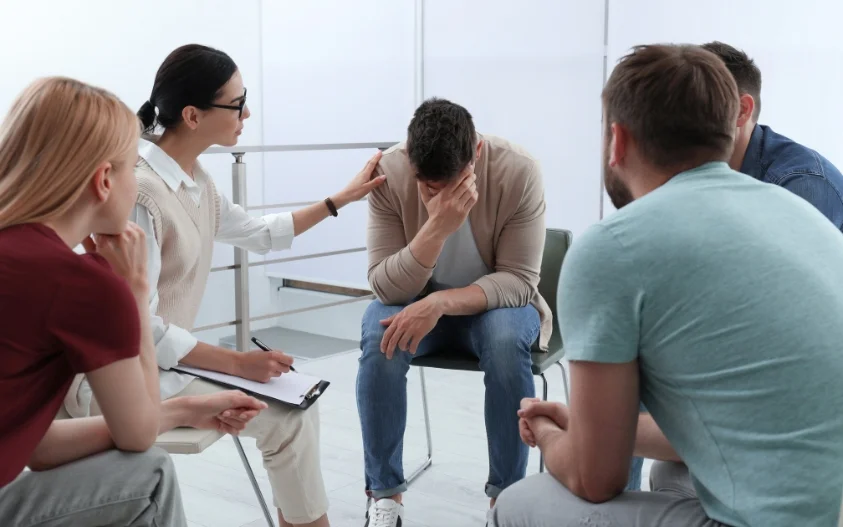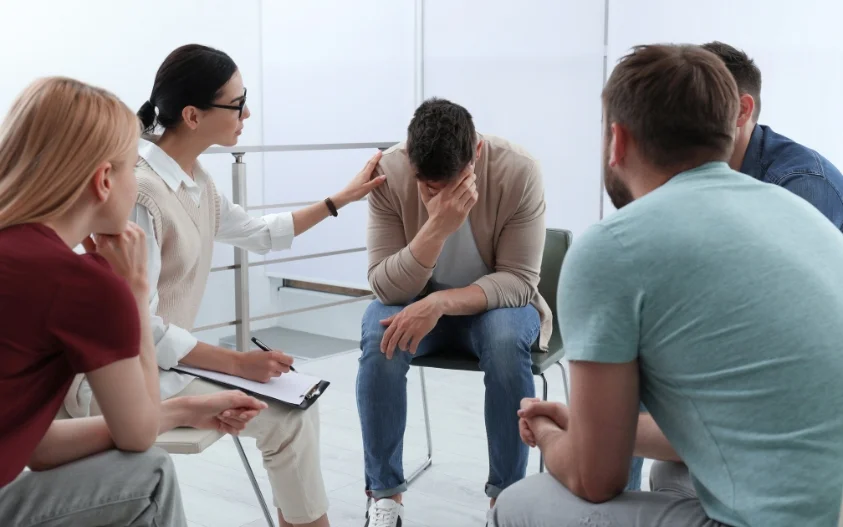24/7 Helpline:
(866) 899-221924/7 Helpline:
(866) 899-2219
Learn more about Prescription drug Rehab centers in Butler County

Other Insurance Options

WellCare Health Plans
Beacon

GEHA

BlueCross

Amerigroup

Regence

PHCS Network

CareFirst

EmblemHealth

Self-pay options

Premera

Meritain

Highmark

ComPsych

Evernorth

UnitedHealth Group

MVP Healthcare

Health Choice

Lucent

Medical Mutual of Ohio

Southeast Missouri Behavioral Health – South Main Street
Southeast Missouri Behavioral Health - South Main Street is an outpatient facility that offers treat...

Southeast Missouri Behavioral Health
Southeast Missouri Behavioral Health - New Era Center is a residential facility that offers treatmen...

Behavioral Health Group
Behavioral Health Group is a private rehab located in Poplar Bluff, Missouri. Behavioral Health Grou...





























FCC Behavioral Health – Butler County Clinic
FCC Behavioral Health is a private, non-profit community behavioral health center with a proven hist...

Correctional Counseling
Correctional Counseling is a private rehab located in Poplar Bluff, Missouri. Correctional Counselin...

Poplar Bluff Medical Center – Outpatient
Poplar Bluff Medical Center – Outpatient is a private rehab located in Poplar Bluff, Missouri. Popla...

Poplar Bluff Regional Medical Center – Behavioral Health
Poplar Bluff Regional Medical Center - Behavioral Health, located in Bluff, Missouri, offers alcohol...

AA – Alcoholics Anonymous – Unity Group
AA – Alcoholics Anonymous – Unity Group is a non-profit rehab located in Poplar Bluff, Missouri. AA ...

Southeast Missouri Behavioral Health – Vine St
Southeast Missouri Behavioral Health - Vine St is an outpatient facility that offers treatment for i...






















































